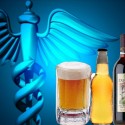Call
888-647-0579
to speak with an alcohol or drug abuse counselor.
Who Answers?
Addiction Science
It’s challenging for some to understand why addiction affects one individual and not the next. In fact, even doctors and treatment professionals are sometimes at a loss of words when it comes to explaining the science behind addiction and what it is that makes some people become addicted to drugs or alcohol while others steer clear of the problem. Scientific advances have helped doctors, treatment professionals and others to better understand the science behind addiction and continued research embarks on the consistent journey to discover more about what it is that causes addiction and addictive behaviors.
People of all ages suffer the harmful consequences of drug abuse and addiction.
The National Institute on Drug Abuse, NIDA, estimates that the total cost of addiction to drugs, alcohol, nicotine and illegal substances is upwards of half a trillion dollars each year in America alone. This includes the impact that drug abuse and addiction has on the economy, the criminal implications that arise from addiction, the medical needs that result and the overall social impact of addiction. More than half a million people die as a result of addiction related causes each year in the United States.
The Science Behind Addiction
There are a number of ways that science has helped to provide solutions for those who are addicted to drugs or alcohol. Scientists study the ways that drugs, alcohol and other substances affect the brain and how these chances impact human behavior. The information that is gained helps in making better judgment calls when it comes to addiction treatment and also when it comes to finding new methods of helping people to effectively recover.
Addiction is a chronic disease that is characterized by changes in the brain which result in a compulsive desire to use a drug. Through science, it has been determined that an individual’s risk of becoming addicted can be influenced by a number of factors including both genetics and environmental influence. Addiction science focuses on taking a closer look at how all of these factors, everything from biology to the environment to family, influence people to used drugs or alcohol and to potentially become addicted.
A U.S. study says women who have more than five alcoholic drinks at one sitting are at increased risk of having unsafe sex and contracting sexually transmitted diseases. Researchers at John Hopkins University medical school in Baltimore looked at the correlation between binge drinking and risky sexual behaviours in women. They interviewed patients at an….
Continue reading ›
Suffering from excruciating spinal deterioration, Robby Garvin, 24, of South Carolina, tried many painkillers before his doctor prescribed methadone in June 2006, just before Mr. Garvin and his friend Joey Sutton set off for a weekend at an amusement park. On Saturday night Mr. Garvin called his mother to say, “Mama, this is the first….
Continue reading ›
There is little doubt that compulsive shopping can cause severe impairment and distress, two key criteria for formal recognition as a mental disorder. But the rest remains up for grabs: Is compulsive shopping a biologically driven disease of the brain, a learned habit run amok, an addiction in its own right or a symptom of….
Continue reading ›
We all know that music can alter your mood. Sad songs can make you cry. Upbeat songs may give you an energy boost. But can music create the same effects as illegal drugs? This seems like a ridiculous question. But websites are targeting your children with so-called digital drugs. These are audio files designed to….
Continue reading ›
Puffing on a first cigarette is a rite of passage for many teenagers, but whether it is enjoyable may be partly down to genetics, researchers suggest. University of Michigan scientists have identified a gene variant found more often in people who said their first cigarette produced a “buzz”. These people were much more likely to….
Continue reading ›

critical surgery Life-saving surgery to prevent repeated severe bleeding from ruptured veins in the esophagus or upper stomach may not induce some patients with alcoholic liver disease to stop drinking alcohol, researchers report. Such a surgical procedure may be necessary to reduce the pressure in the veins of the esophagus and upper stomach among patients….
Continue reading ›
Strong cravings for alcohol can be sparked by the mere sight, smell and taste of a person’s favorite drink. Responses to such cues that are associated with the positive effects of drinking are a lead cause of relapse in abstinent alcoholics. Using a behavioral animal model, researchers of a new study, scheduled for publication in….
Continue reading ›
The Internet is where we spend more and more of our time. But for a growing number of people, it’s an out-of-control habit instead of a necessary part of life. Internet addiction — an online-related compulsive behavior that interferes with normal living and causes severe stress on family, friends, loved ones and work — is….
Continue reading ›
The effects of fetal alcohol exposure may be more profound than researchers hoped. Results of a new study reveal the prenatal damage to peptides in the fetal brain may endure into adulthood despite environmental enrichment provided in a child’s early years. Neurotrophins — a family of peptides produced in the nervous system — are critical….
Continue reading ›

A study in this month’s Anesthesiology found evidence that alcohol use disorders (AUDs) are frequently overlooked in patients undergoing surgery ― but also touts a very simple and effective method to identify patients who may be at risk for alcohol-related perioperative complications. In the AUD study, anesthesiologist Claudia D. Spies, M.D., and her research group….
Continue reading ›

